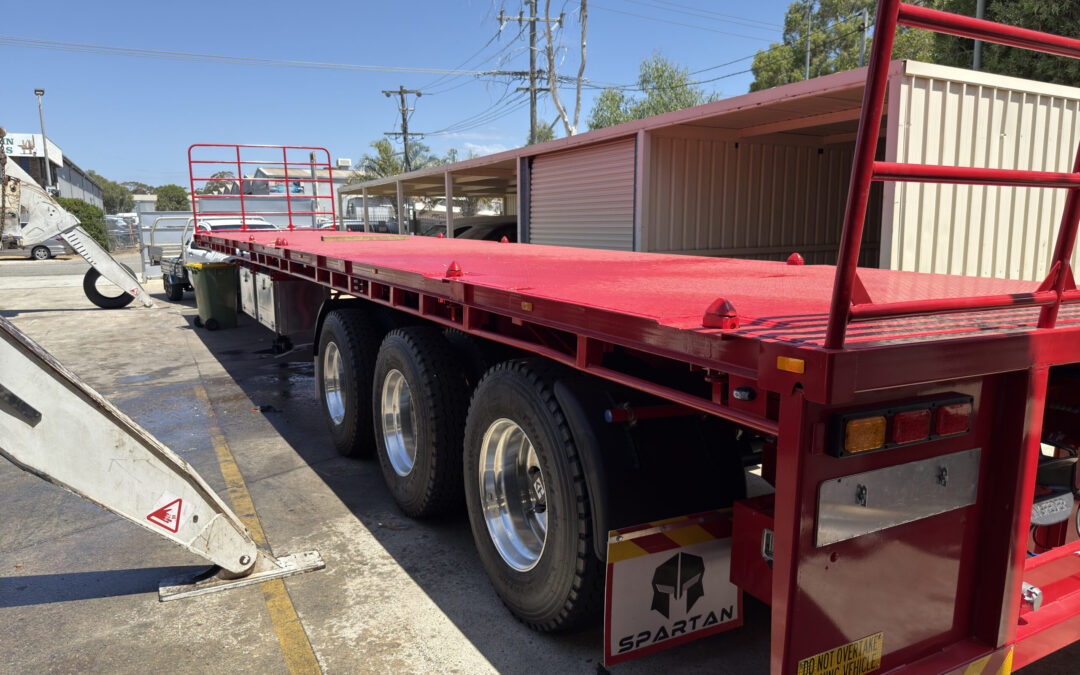In the transportation and logistics industry, trailers are essential assets that enable businesses to efficiently haul goods, equipment, and materials across long distances. Whether you are a construction company, a logistics provider, or an independent hauler, investing in the right trailer can significantly impact your business’s efficiency, durability, and cost savings. This is why choosing a reliable trailer manufacturer is a critical step.
Trailer manufacturer are not just fabricators of metal frames; they are engineers, designers, and partners who understand the unique challenges of your industry. A trustworthy manufacturer will offer tailored solutions, high-grade materials, and compliance with all relevant safety standards. From flatbeds to refrigerated trailers, your choice of manufacturer can directly influence your operational success.
Understanding the Role of Trailer Manufacturers
Trailer manufacturers design, engineer, and build trailers used for commercial and industrial purposes. Their product lines often include:
- Flatbed Trailers
- Enclosed Trailers
- Refrigerated Trailers
- Lowboy Trailers
- Gooseneck and Fifth-Wheel Trailers
- Utility and Cargo Trailers
- Specialty and Custom-Built Trailers
These manufacturers also provide services like trailer customization, repair, maintenance, and parts supply. Their expertise ensures that each trailer meets specific weight, length, and hauling requirements while complying with legal regulations such as Department of Transportation (DOT) standards.
Key Features of a Reliable Trailer Manufacturer
When searching for a trailer manufacturer, consider these critical features:
1. Custom Fabrication Services
Top manufacturers offer custom-built trailers tailored to your industry’s needs. Whether you need a trailer to haul heavy construction machinery or sensitive perishable goods, the ability to customize size, axle load, suspension, flooring, and insulation is invaluable.
2. Durable Materials and Construction
Reputable manufacturers use corrosion-resistant steel or aluminum and high-quality welding techniques to ensure longevity and durability, especially for off-road and long-distance hauls.
3. Advanced Technology Integration
Modern trailers are equipped with GPS tracking, smart load sensors, temperature control (in reefer trailers), and anti-lock braking systems (ABS). A good manufacturer stays ahead by incorporating the latest technology into their builds.
4. Safety Compliance
Manufacturers must adhere to ISO certifications, DOT compliance, and local safety regulations. This ensures your trailer is road-legal and safe under various conditions.
5. Warranty and After-Sales Support
Reliable manufacturers offer comprehensive warranties and support services, including parts replacement, roadside assistance, and servicing.
Benefits of Working with Reputable Trailer Manufacturers
Increased Operational Efficiency
High-quality trailers reduce maintenance costs and downtime, helping businesses stay on schedule.
Enhanced Safety and Compliance
From braking systems to load-bearing capacity, good design reduces risks for both drivers and cargo.
Long-Term Cost Savings
Well-built trailers may have a higher initial investment but will save money in the long run through fewer repairs and better resale value.
Scalability
Whether you need one trailer or a fleet, the right manufacturer can scale their production without compromising on quality.
Top Trailer Manufacturers Worldwide
While there are many regional trailer producers, some manufacturers have set a global benchmark:
- Great Dane Trailers (USA): Known for refrigerated and dry freight trailers with strong customer support.
- Schmitz Cargobull (Germany): Europe’s largest manufacturer offering high-tech and sustainable trailer options.
- Utility Trailer Manufacturing Company (USA): Offers a broad range of trailers ideal for freight and logistics companies.
- Lider Trailers (Turkey): Renowned for innovation and high-quality utility trailers.
- Tata Motors (India): A leading name in trailer manufacturing for industrial transport needs in South Asia.
Internal Link: Where to Find Reliable Trailer Builders
Looking for a more customized solution for your logistics fleet? Check out our guide on how to find the best trailer builders near you for practical tips and vendor recommendations.
How to Choose the Right Manufacturer for Your Needs
1. Identify Your Hauling Requirements
What will you be transporting—machinery, produce, livestock, or equipment? Different loads require different trailer types and specs.
2. Consider Load Capacity and Dimensions
Ensure the manufacturer offers trailers that fit within legal road limits and can handle the payload weight.
3. Check Reviews and Past Projects
Customer testimonials, case studies, and site visits can help you gauge the manufacturer’s reliability and product quality.
4. Evaluate Delivery Timelines
Lead times can significantly impact your project schedules, so ask about production and delivery timelines before committing.
5. Ask About Support and Warranty
Ensure the manufacturer provides service guarantees and parts availability to keep your trailer on the road.
Case Study: Custom Trailer Solution for a Construction Company
A mid-sized construction firm in Arizona needed a durable, multi-purpose trailer to transport heavy equipment like excavators and skid-steers. After consulting multiple vendors, they chose a manufacturer who offered:
- Custom ramp design for faster loading
- Reinforced flooring
- Hydraulic braking systems
- Powder-coated finish for rust resistance
The result? Reduced loading/unloading time by 30% and maintenance costs dropped by 15% over 12 months.
Final Thoughts
The importance of selecting the right trailer manufacturer cannot be overstated. Whether you need one unit or an entire fleet, a reliable manufacturer provides durability, safety, customization, and ongoing support—all critical for success in any transport or logistics operation.
Take your time, do your research, and choose a trailer manufacturer that aligns with your long-term business goals. Remember, your trailer is more than just a vehicle—it’s an investment in performance and reliability.
